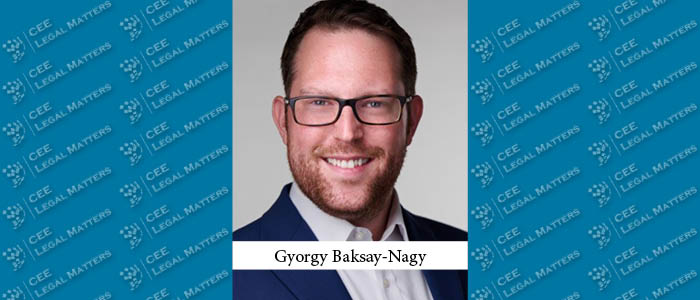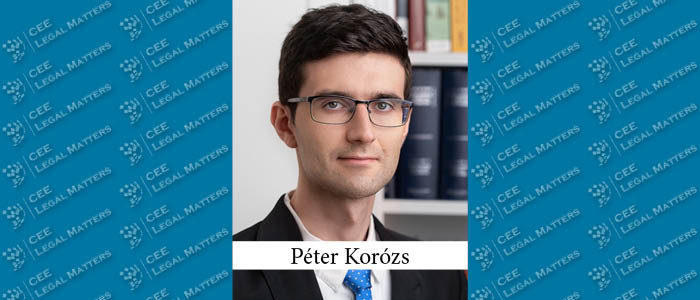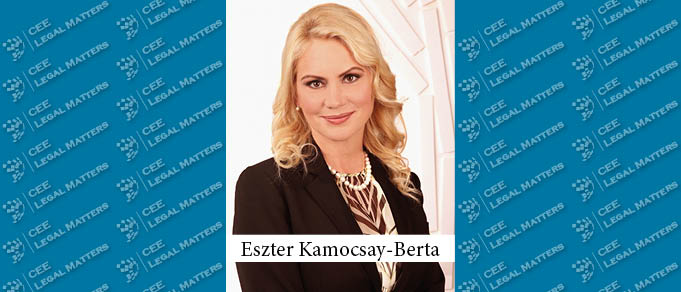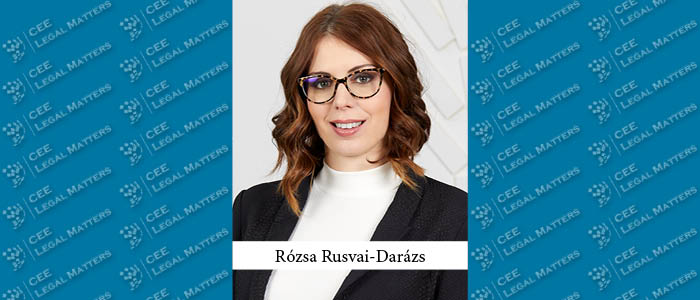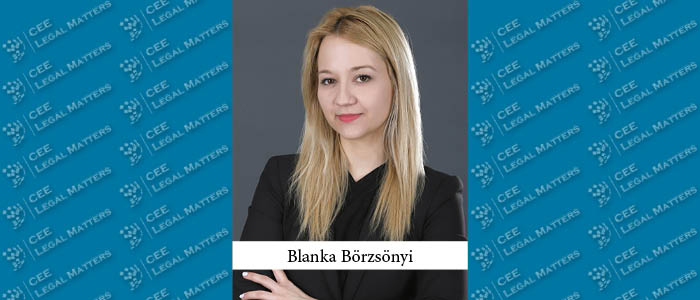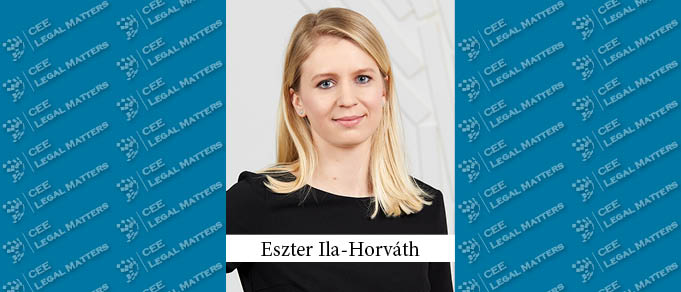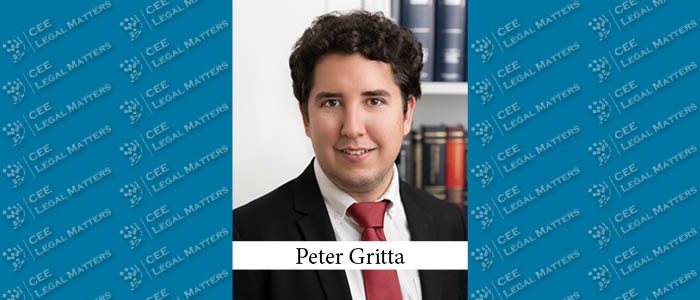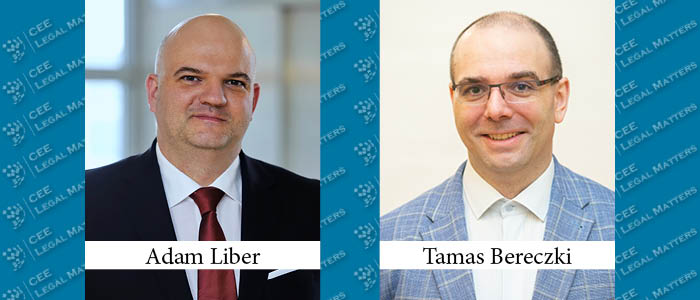The rules on the order for payment order procedure have changed significantly as of 1 October 2023. Many of the changes are related to the simplification and digitalisation of the procedure.
WKB Advises Orkla on Sale of 40% Stake in Orkla Food Ingredients to Rhone
WKB Lawyers, working alongside Norway-based Advokatfirmaet Wiersholm, has advised Orkla on the sale of a 40% stake in Orkla Food Ingredients to Rhone. Norway's Thommessen reportedly advised Rhone.
Gyorgy Baksay-Nagy Appointed Head of Intellectual Property at OPL Gunnercooke
Attorney at Law Gyorgy Baksay-Nagy has been appointed as the Head of the Intellectual Property practice group at OPL Gunnercooke.
Balazs Tomaj Joins Kinstellar as Senior Counsel
Former MVM Deputy CEO Balazs Tomaj has joined Kinstellar in Budapest as Senior Counsel.
New Hungarian Construction Act Under Way – What Will Be The Main Changes?
The draft of the new Hungarian Construction Act was recently published for public consultation. Although the act only lays down the general rules, and details will be laid down in other regulations that are not yet known, several new features can already be seen in the draft. In our short article we summarise a few important changes.
Can the Conduct After the Conclusion of the Contract be Considered When Assessing Sham Contracting?
When we consider the validity of a contract on the basis of the parties' will, it is usually the will at the time of the conclusion of the contract that is relevant. In a recent decision, however, the Supreme Court of Hungary has pointed out that in the case of a long-lasting legal relationship, such as an employment relationship, the parties' actions after the conclusion of the contract in order to perform it must also be taken into account when determining the contractual intention.
The Law on Personal Income Tax May Change in Hungary
Presently, a legislative proposal has been placed on the agenda, focusing on measures aimed at streamlining governmental operations. This comprehensive proposal encompasses various modifications, one of which pertains to an amendment to the personal income tax act (“PIT Act”).
DLA Piper and Schoenherr Advise on Sale of Majority Stake in East Grain to Agrofert Group
DLA Piper has advised Romanian grain and oilseed trader East Grain on the sale of a majority stake in the company and its Hungarian subsidiary to the Czech Republic's Agrofert group. Schoenherr advised the buyer.
Are the Laws on Learning About Occupational Health and Safety Rules Changing for the Better?
A package called “Provisions on further simplification of the functioning of the state” has been discussed at the Hungarian Parliament in the autumn of 2023.
A Guide to Find Out If You Need a Well Permit
The National Water Resources Protection Map, required for the licensing of domestic and agricultural wells under the amendment to the Water Management Act, has been completed and is available on the website of National Water Directorate (in Hungarian: “Országos Vízügyi Főigazgatóság”). This Protection Map will play a central role in the future licensing of domestic groundwater wells.
ECJ Gives its Judgment in the Xella Case: Key Takeaways
In July 2023 the European Court of Justice (ECJ) gave its judgment in case no. C-106-22 (Xella Judgment). The case was referred by the Fővárosi Törvényszék (Budapest High Court, Hungary) for preliminary ruling on the interpretation of Article 65(1)(b) TFEU in conjunction with recitals 4 and 6 of Regulation (EU) 2019/452 (EU FDI Regulation) and Article 4(2) TEU.
Can Companies Be Sued for Using a Name Similar to Another Company in Hungary?
The company name is an important asset of the company and also helps the customers when choosing between products or services. Therefore, a new company can only be founded with a name that is sufficiently different from existing companies. What are the legal options for a company if, despite the above, a new company with a very similar name has been registered?
The Entry into Force of the New Land Registry Act Is Postponed Again to October 1, 2024
On 1 October 2023, the amendments of the new Land Registry Act entered into force and as a result, the Act will enter into force only on 1 October 2024, instead of the date of 1 February 2024 already postponed from the initial date of 1 February 2023.
The Revocation of the Act on the Employment of Guest Workers
On 5 October 2023, the Government adopted a new decision according to which it will review the current regulation on the entry, residence and employment of third-country nationals in Hungary with the aim of tightening the statutory provisions in this respect.
Lakatos Koves and Partners Advises Coats on Sale of Thread Factory in Hungary
Lakatos Koves & Partners has advised Bristol-based industrial thread manufacturer Coats on the sale of its thread factory in Ujpest, Hungary.
Immediate Termination for Breach of Company Policy? The Hungarian Supreme Court Ruled
The Hungarian Labour Code specifies that the dismissal by the employer may be in relation to the behaviour of the employee, but it does not specify exactly what kind of behaviours can be considered. The question arises as to whether the employer can define the possible reasons for termination in its own regulations, if so, can the termination be based solely on the violation of the internal regulations? In our article, we analyse this question based on the recent decision of the Supreme Court.
AI’s emergent abilities a ‘double-edged sword’
In recent months, the focus on artificial intelligence shifted to generative pre-trained transformers that rely on large language models, and tools, such as OpenAI’s ChatGPT or Google’s Bard, as they became widely available to the public.
CMS Advises Panattoni Hungary on Two Built-to-Suit Projects
CMS has advised the Hungarian branch of Panattoni on a dual built-to-suit contract to develop two manufacturing facilities in Debrecen and Kecskemet, covering 30,000 square meters, for a German automotive supplier. Noerr reportedly advised the counterparty.



